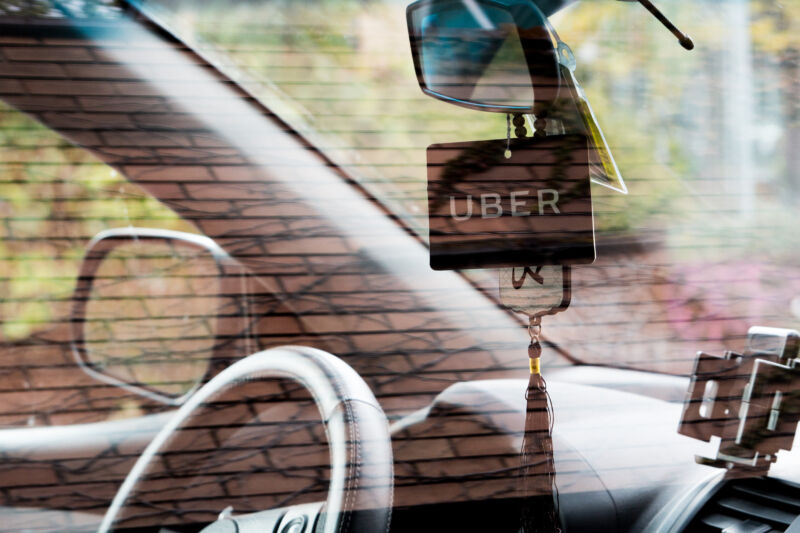
Media outlets have only just begun digging up all the dirt buried in the so-called Uber files. Gathered by The Guardian, the more than 124,000 confidential files reportedly show precisely how Uber’s greed drove unethical executive decision-making during the ridesharing app’s global expansion.
Kicking off a series of reports from various outlets, The Guardian did a deep dive into private communications that form the majority of the data leak. That cache of 83,000 emails, iMessages, and WhatsApp messages allegedly reveals “the inside story” of how Uber spent five years evading police while imperiling driver safety, attacking rivals, secretly wooing officials with financial incentives, and brazenly disregarding laws in pursuit of market dominance.
Acknowledging misdeeds that occurred between 2013 and 2017, all Uber has to say now is: Let’s leave the past in the past.
“We have not and will not make excuses for past behavior that is clearly not in line with our present values,” Uber SVP of Marketing & Public Affairs Jill Hazelbaker wrote in a statement. “Instead, we ask the public to judge us by what we’ve done over the last five years and what we will do in the years to come.”
Uber did not immediately respond to Ars’ request for comment, but its official stance is that it has since corrected course under new leadership. It’s become a “different company,” thanks to the “90 percent of current Uber employees” who joined after CEO Dara Khosrowshahi came onboard to right the ship in 2017. The company says that today it prioritizes driver safety, partners with taxi companies and unions that it once waged war on, and transparently works with officials to comply with thousands of regulations.
Despite Uber’s wishes, the past is unlikely to remain in the past, though, and the timing of the Uber files’ release is not great. The public reckoning of the Uber files arrives just as the tech company has become profitable for the first time in its history.
The Guardian report is the first of many to come from a massive global investigation into Uber conducted by 180 journalists representing 40 media outlets. They came together through the International Consortium of Investigative Journalists to share the treasure trove of data in hopes of telling the full story of Uber’s dodgy past. This summer, expect to see more scandalous Uber stories from outlets including the BBC, Washington Post, and Le Monde.
What did Uber do?
The Guardian report shows how Uber staff and executives at the highest level—at the time operating under Uber co-founder Travis Kalanick—joked about the company’s “other than legal status” and openly discussed other dubious growth tactics.
Messages from executives evidence how Uber allegedly strategically skirted regulations in many countries, including Turkey, South Africa, Spain, the Czech Republic, Sweden, France, Germany, and Russia. “We are not legal in many countries, we should avoid making antagonistic statements,” one executive cautioned in an email.
The messages also document how, at least a dozen times, when law enforcement in France, the Netherlands, Belgium, India, Hungary, and Romania attempted raids on Uber offices to crack down on suspected illegal activity, Uber flipped an internal “kill switch” to cut off authorities from accessing its data systems. “We have officially become pirates,” another executive claimed in an email.
Kalanick’s spokesperson told The Guardian that the “kill switch” software was not designed to help Uber evade authorities and “should never have been used to thwart legitimate regulatory action.” The spokesperson also said that Uber stopped using the software in 2017, “when Khosrowshahi replaced Kalanick as CEO.”
These tactics and other dubious protocols were reportedly sanctioned by Uber’s legal department.
Standing out from thousands of communications that The Guardian sifted through was another message from Uber’s head of global communications, Nairi Hourdajian. It made plain that leadership considered Uber above the law. “We’re just fucking illegal,” Hourdajian declared. (Hourdajian declined to comment in The Guardian story.)
The future of Uber
Last November, Uber celebrated its first profitable quarter since launching, approximately four years after replacing its CEO. More recently, The New York Times reported in May that Uber profits have continued to climb, with the company reporting “$6.9 billion in revenue for the first three months of 2022, outstripping analysts’ expectations and skyrocketing 136 percent from the same time last year.”
It’s no wonder that Uber hopes to look ahead rather than dwell on the past by accounting for all of the “mistakes and missteps” made during what Hazelbaker described as “one of the most infamous reckonings in the history of corporate America.”
While the majority of leadership responsible for that reckoning is out of the picture now, some executives like Uber Eats chief Pierre-Dimitri Gore-Coty—previously in charge of Western Europe Uber operations—have stuck around. In Gore-Coty’s case, he blames poor decision-making during Uber’s early years on youth and inexperience, saying that he “too often took direction from superiors with questionable ethics.”
Uber stated how it has made an enormous shift in company culture, and its recent profitability seems to suggest that the new strategy is paying off. “We’ve moved from an era of confrontation to one of collaboration, demonstrating a willingness to come to the table and find common ground with former opponents, including labor unions and taxi companies,” Hazelbaker wrote. “We are now regulated in more than 10,000 cities around the world, working at all levels of government to improve the lives of those using our platform and the cities we serve.”
As its profits finally rise, whether Uber gets to the end of its rocky road to redemption without facing more public backlash will likely depend on what the upcoming reporting from the Uber files shows.
https://arstechnica.com/?p=1865604

